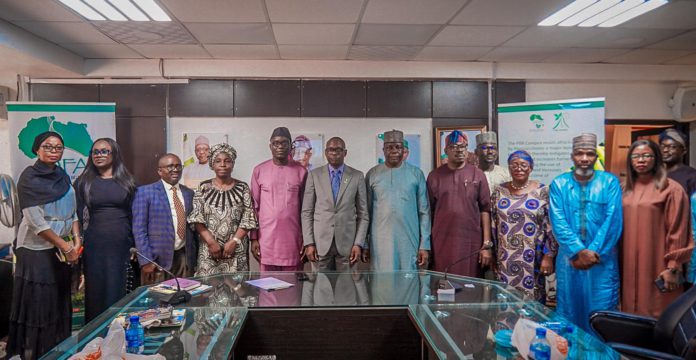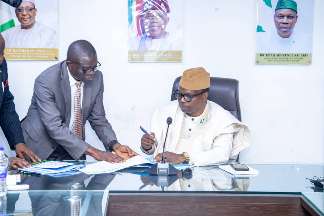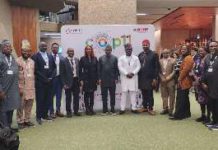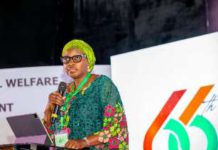Our Correspondent
The Federal Government has on Tuesday affirmed that Genetically Modified Organisms (GMOs) as a vital tool for national development.
Minister of State for Health and Social Welfare, Dr. Iziaq Adekunle Salako made the disclosure at a sensitization workshop in collaboration with the Open Forum on Agricultural Biotechnology (OFAB) in Africa Nigeria Chapter and the National Biotechnology Research and Development Agency (NBRDA) on Tuesday in Abuja.
He charged them to be sure the policies will be guided by facts, not fear by science, not speculation, noting that if there is contrary peer-reviewed evidence, let it be brought to the table.
Biotechnology as a Driver of Progress
Dr. Salako described biotechnology as a cornerstone of modern innovation. He highlighted its role in advancing diagnostics, vaccines, regenerative medicine, and food security. However, he emphasized that scientific advancement must be matched with responsible deployment.
“We are committed to ensuring that scientific progress does not outpace regulatory safeguards,” he said.
The Minister noted ongoing collaboration with regulatory bodies such as NBMA, NAFDAC, and the NBRDA to ensure transparency and safety.
He also promised that GMO food products will be properly labeled to allow Nigerians to make informed choices.
The Director General/CEO of the National Biotechnology Research & Development Agency Prof. Abdullahi Mustapha
Experts Echo Government’s Position Stakeholders from research, academia, and biosafety institutions backed the Minister’s stance.
Prof. Abdullahi Mustapha, Director-General of the NBRDA, called biotechnology a strategic solution to national challenges.
He said the agency is producing high-yield, genetically enhanced seeds to help reduce maize imports and increase export potential.
“Without innovation-driven technology, Nigeria cannot move forward,” Mustapha said.
Dr. Rufus Ebegba, a biosafety expert, explained that GMOs undergo detailed risk assessments before approval.
These include tests for allergenicity, nutritional content, and environmental impact.
“GMOs are living organisms, not synthetic chemicals,” he stated.
Pharm. (Mrs.) Olubunmi Aribeana, Director of Food and Drug Services (represented by Mr. John Atanda), addressed public concerns.
She stressed that all GMO products must meet stringent safety requirements and that proper labeling and traceability are being enforced.
Local Relevance and Climate Solutions
Prof. Lawan Mohammadu, Head of Plant Science at Ahmadu Bello University, emphasized how biotechnology can help farmers adapt to changing weather patterns.
He said it now takes less than five years to breed improved crops what used to take a decade.
“This is a game-changer for food security,” he noted.
Dr. Rose Gidadob, Director of Agricultural Biotechnology at NBRDA, closed the session with a call for unity.
“This workshop is a turning point,” she said. “It reflects our shared resolve to build a healthier, more resilient Nigeria through science.”
Middle: Dr. Iziaq Adekunle Salako Honourable Minister of State for Health & Social Welfare: from 3rd Left Dr. Paul Ntadom, Director Public Health Department; Dr. Adegoke, representing Director Hospital Services Department; Mr. John Atanda representing Director Food&Drugs Services Department.
To the Minister’s Left: Prof. Abdullahi Mustapha Director General/ CEO National Biotechnology Research and Development Agency; next Dr. Rufus Ebegba former DG/CEO NBMA; Dr. Rose Gidado Director Agricultural Biotechnology NBRDA and, Prof. Lawan Muhammadu Head of Dept, Plant Sciences Ahmadu Bello University Zaria.
Toward a Sustainable Future
Dr. Salako tied the push for biotechnology to the Renewed Hope Agenda of President Bola Ahmed Tinubu, which prioritizes innovation and collaboration.
He called for stronger partnerships between government, researchers, and the private sector.
“Together, we can unlock the full potential of biotechnology while ensuring the highest standards of biosafety,” he said.
















